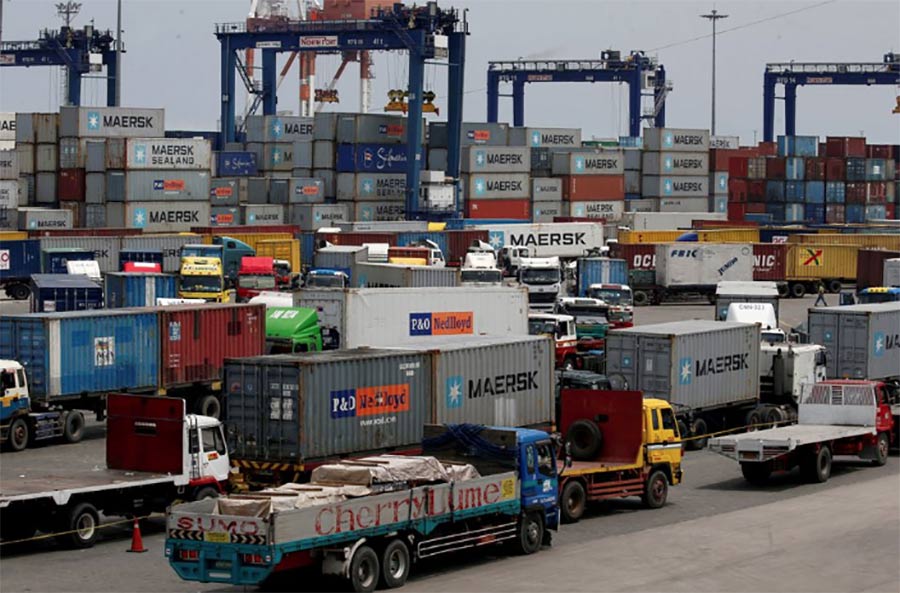Trade facilitation in the Philippines has improved, but the country still has room for further growth in certain areas, particularly in cross-border trade, according to a new United Nations survey.
The Philippines lifted its trade facilitation score to 87.1 percent this year compared to 86.02 percent two years ago, according to the UN Fifth Global Survey on Digital and Sustainable Trade Facilitation report released July 5.
The country scored highest in the categories of transparency and formalities, notching 100 percent in both.
It garnered 85.19 percent in paperless trade, 77.78 percent in institutional arrangement and cooperation, and 66.67 percent in cross-border paperless trade, said the UN Economic and Social Commission for Asia and the Pacific (UNESCAP).
Compared to 2021, the Philippines’ scores for the first four categories were unchanged.
Only cross-border paperless trade showed improvement in 2023 from 61.11 percent two years ago.
Compared to its Asean peers, the Philippines is tied in second place with Indonesia and Malaysia, both scoring 87.1 percent as well. In 2021, Indonesia registered 84.95 percent while Malaysia posted 86.02 percent.
Not surprisingly, Singapore leads the group in this latest survey with a trade facilitation score of 96.77 percent (95.7 percent in 2021). Thailand booked 84.95 percent (same as 2021), Cambodia 80.65 percent (from 78.49 percent), Vietnam 74.19 percent (from 66.67 percent), Laos 67.74 percent (from 63.44 percent), and Myanmar 61.29 percent (down from 65.59 percent).
The latest UN survey on trade facilitation covers 161 economies and 60 measures related to the World Trade Organization’s Trade Facilitation Agreement as well as to paperless trade and the UN treaty on cross-border paperless trade in Asia and the Pacific.
The report says the Philippines has fully implemented all transparency and formalities measures; hence, the perfect scores in both cases.
Meanwhile, paperless trade showed full implementation in areas such as automated customs systems, electronic submission of customs declarations, and e-payment of customs duties and fees. Partial implementation was noted for the electronic single window system, electronic application for customs refunds, and electronic application and issuance of import and export permits, among others.
On the other hand, cross-border paperless trade measures remain partially implemented, including laws and regulations for electronic transactions, recognized certification authority, and electronic exchange of the Certificate of Origin, indicating more work is needed.
On trade facilitation for SMEs, the country can do better, it appears. The report says it has yet to implement SMEs’ inclusion in the Authorized Economic Operator scheme, access to the single window, and inclusion in the national trade facilitation committee. On the other hand, trade-related information measures for SMEs are fully implemented, while other special measures for SMEs remain partially implemented.
In agriculture trade facilitation, meanwhile, fully implemented include measures on national standards and accreditation bodies for sanitary and phytosanitary certificate (SPS) compliance and special treatment for perishable goods. Among the partially implemented measures are those on testing and laboratory facilities available for SPS and electronic application and issuance of SPS certificates.
As for trade facilitation for e-commerce, this is already fully implemented, while trade finance facilitation measures remain partially implemented, along with women in trade facilitation and wildlife trade facilitation.
The latest report by the UN indicates that the implementation rate of both general and digital trade facilitation measures worldwide has increased by over six percentage points from 2021 to 2023, with the global average now standing at a promising 68.7 percent.
Developed economies lead the pack with a rate of 85.3 percent, closely followed by nations in Southeast and East Asia at 76.6 percent. The Pacific Islands, however, lag with a 42.3 percent implementation rate.
The Asia-Pacific region has made encouraging progress, increasing its implementation rate by approximately three percentage points since 2021. Australia, New Zealand, and East and Northeast Asia are ahead of the curve.
Despite cross-border paperless trade measures being lower in adoption, substantial progress has been made in areas like e-transaction laws and electronic exchange of SPS certificates, showcasing the region’s drive to modernize trade and foster international collaboration.
On the flip side, the 2023 survey also points out the need for greater focus on sustainable trade facilitation measures and support for vulnerable groups, such as SMEs, agricultural sector entities, and female traders.
The survey is conducted jointly by all five UN regional commissions, UNCTAD, and global and regional partners every two years. (Philexport New & Features)




